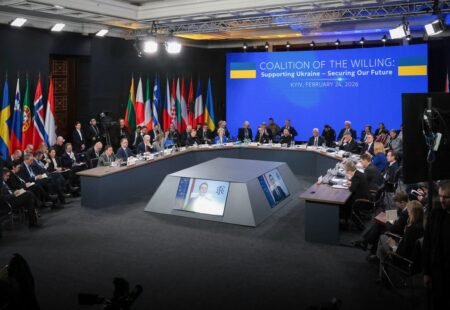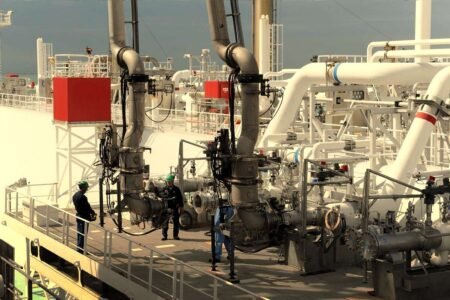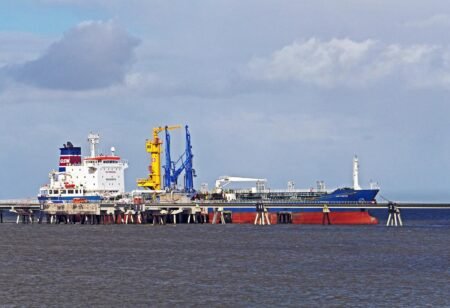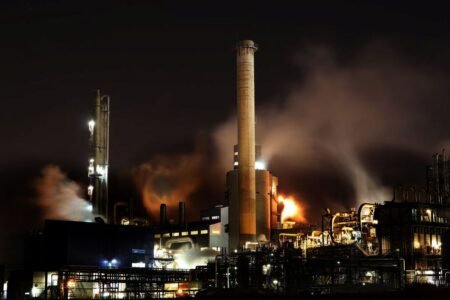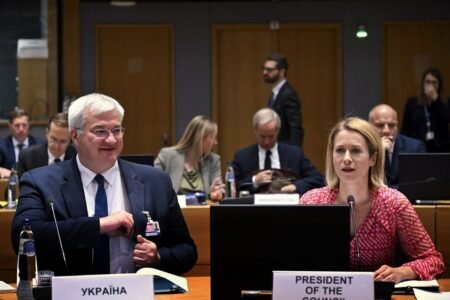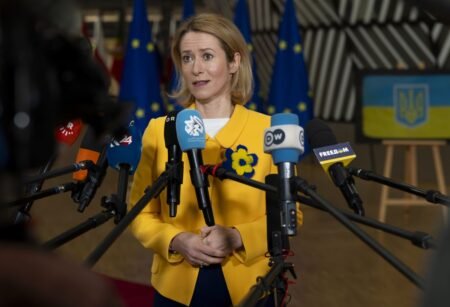The EU Council has adopted an 18th package of economic and individual restrictive measures intended to hit hard Russia’s energy, banking and military sectors, as well as trade with the EU.
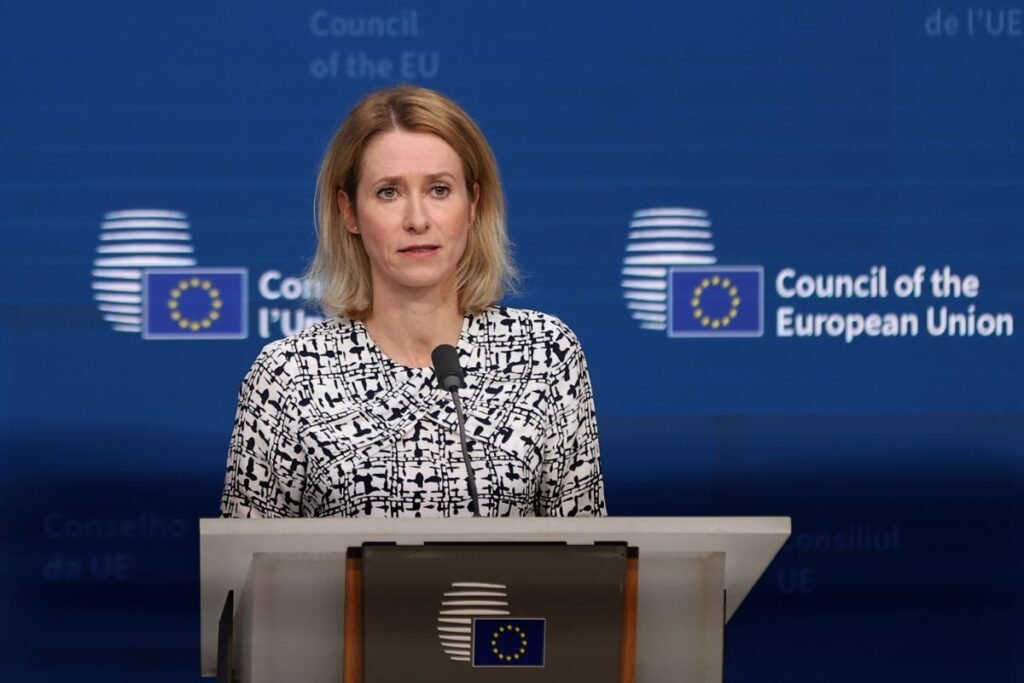
“Each sanction weakens Russia’s ability to wage war,” said the EU’s foreign policy chief Kaja Kallas: “The message is clear: Europe will not back down in its support for Ukraine. The EU will keep raising the pressure until Russia ends its war.”
The latest package includes economic and individual measures with a view to increasing pressure on Russia and to achieving a just and lasting peace for Ukraine.
The Council has agreed on a significant set of 55 listings, consisting of 14 individuals and 41 entities responsible for actions undermining or threatening the territorial integrity, sovereignty and independence of Ukraine, bringing the total number of individual listings to over 2 500.
The EU is looking to curtail Russia’s energy revenues, lowering the price cap for crude oil from USD 60 to USD 47.6 per barrel, to align it with current global oil prices. It is also introducing an automatic and dynamic mechanism to modify the oil price cap and ensure that this price cap is effective. Oil exports still represent one third of the Russian government’s revenues.
Further sanctions are bveing imposed across the shadow fleet value chain. An additional 105 vessels will be subject to a port access ban and a ban on the provision of a broad range of services related to maritime transport, bringing the total number of listed vessels to 444. This measure targets non-EU tankers that are part of Vladimir Putin’s shadow fleet circumventing the oil price cap mechanism, which support the energy sector of Russia or which transport military equipment for Russia or stolen Ukrainian grain.
Fully-fledged sanctions (asset freezes, travel bans, bans on providing resources) target Russian and international companies managing shadow fleet vessels, traders of Russian crude oil and a major customer of the shadow fleet – a refinery in India with Rosneft as its main shareholder.
An import ban is being introduced on refined petroleum products made from Russian crude oil and coming from any third country – with the exception of Canada, Norway, Switzerland, the United Kingdom and the United States – to prevent Russia’s crude oil reaching the EU market through the back door.
The EU is also imposing a full transaction ban on Nord Stream 1 and 2, including for the provision of goods or services, thus preventing the completion, maintenance, operation and any future use of the Nord Stream 1 and 2 pipelines.
Lastly, the Council decided to end the exemption for oil imports from Russia to Czechia.
On banking, the EU is upgrading the existing prohibition on providing EU-based specialised financial messaging services to certain Russian banks to a full transaction ban. This will apply to 22 additional Russian banks, on top of the 23 banks already subject to the ban.
Regarding banking, the EU is lowering the threshold for sanctioning third-country financial and credit institutions and crypto-asset service providers that are frustrating sanction measures against Russia, supporting Russia’s war of aggression or are connected to the System for Transfer of Financial Messages (SPFS), the Russian alternative financial messaging service, developed by the Central Bank of Russia and used to shield Russian banks from the impact of EU sanctions.
And the EU is expanding the transaction ban on third countries’ financial and credit institutions and crypto-asset service providers which, through their actions, frustrate EU sanctions or support Russia’s war of aggression against Ukraine. The transaction ban on third-country operators that circumvent oil-related prohibitions has also been widened.
Additionally, a ban is imposed a ban on carrying out any transaction with the Russian Direct Investment Fund (RDIF) and its sub-funds and companies, and Council has have established an instrument to extend such a ban to certain companies in which the RDIF has invested and to entities providing investment services or other financial services to the RDIF itself. Such companies and financial institutions will be selected by the Council; four Russian entities in which the RDIF has invested are already listed.
Lastly, the Council is putting in place a new ban on selling, supplying, transferring and exporting software management systems and software with certain uses in the banking and financial sector.
With a view to curbing Russia’s military capabilities, the Council is imposing further full-fledged sanctions on suppliers of the Russian military industrial complex, including three entities based in China that sell goods used on the battlefield. These measures aim to further constrain Russia’s access to goods and technologies. Additionally, the package covers eight companies operating in the Belarusian military-industrial complex, which is supporting Russia’s war efforts.
26 new entities will be subject to tighter export restrictions concerning dual-use goods and technologies, including those that could contribute to the technological enhancement of Russia’s defence and security sector. Eleven of these entities are located in third countries other than Russia (seven in China and Hong Kong, and four in Türkiye),and have been involved in circumventing export restrictions, including for unmanned aerial vehicles (UAVs).
Additionally, the EU has agreed further export bans worth more than €2.5 billion. The list of restricted items contributing to the technological enhancement of Russia’s defence and security sector will now include items for the development and production of Russia’s military systems such as computer numerical control (CNC) machines and constituent chemicals for propellants. Furthermore, the existing transit ban via the territory of Russia is expanded to cover selected economically critical goods used for construction and transport.
The Council is imposing sanctions on another individual actively involved in Russia’s “military education” of Ukrainian children. This brings the total number of listings in relation to the deportation and indoctrination of Ukrainian children to over 90. The package also lists several Russian proxies in occupied territories, including a person responsible for manipulating Ukrainian cultural heritage, another leading Russian businessperson and a prominent Russian propagandist.
The EU is also increasing sanctions on Belarus. In addition to the eight new listings related to the Belarusian military complex, today’s package also further mirrors the measures imposed on Belarus’ trade with those imposed on Russia.
And the ban on specialised financial messaging services is upgraded to a full transaction ban and an embargo on imports of arms from Belarus is introduced.


